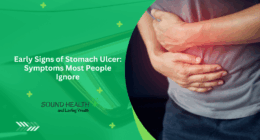Drinking alcohol during adolescence to young adulthood could accelerate arterial stiffening, a precursor to cardiovascular disease, warns a new study.
As we get older, our arteries naturally become stiffer and less elastic, and stiffer arteries are associated with higher risks of heart disease and stroke. However, certain behaviours such as smoking tobacco and drinking alcohol can accelerate arterial stiffening. A study presented at ESC Congress 2021 has linked alcohol use in young adults to early arterial stiffening, a precursor to cardiovascular disease.
The more you drink, the greater the increase in arterial stiffness – said study author Hugo Walford, a medical student at University College London, UK.
The researchers examined the associations between smoking and drinking habits and changes in arterial stiffness in 1,655 participants aged 17 to 24 years. They found:
- An average of 10.3% increase in arterial stiffness from age 17 to 24, with a slightly greater increase in women than in men.
- Arterial stiffness worsened with each point rise in the average alcohol score.
- High intensity smokers had a numerically greater increase in arterial stiffness than never smokers, but this only reached statistical significance in women.
- Changes in arterial stiffness did not differ between ex-smokers and never smokers. This indicates that quitting can restore vascular health at this young age.
Overall, the results indicate that drinking and smoking could put young people, especially young women, at risk of early arterial stiffening, which may eventually lead to heart disease and stroke.
Also read: Five Futuristic Water Purifying Technologies

Risk factors of alcohol use among adolescents
Several studies have linked alcohol use during adolescence with several mental health problems, such as hyperactivity/attention problems, depression, anxiety and suicidal behaviour.
There are many factors that increase alcohol use in adolescents and developing alcohol use disorders. Just being an adolescent is a key risk factor. Developmental changes, such as puberty and increasing independence, have been associated with alcohol use in adolescents and young adults.
A family history of alcohol misuse can also make children more vulnerable to developing alcohol problems.
Also read: Suffering From Constipation? Try This Yoga Asana For Instant Relief
Research has linked certain behavior patterns in early childhood to later drinking problems. For example, researchers found that children who were impulsive, restless, or distractible at age 3 were twice as likely to be diagnosed with alcohol use disorders at age 21 compared to 3-year-olds classified as “well-adjusted.”
Studies have also found that children who exhibit aggressiveness and antisocial behavior are more likely to use alcohol during adolescence, as well as develop alcohol-related problems and severe alcohol use disorders in adulthood.
Alcohol consumption in adolescents and young adults has been linked to a variety of psychiatric disorders in in several research studies. For example, a growing evidence suggest that children with attention deficit hyperactivity disorder (ADHD) and anxiety disorders are significantly more likely to have severe alcohol use disorders in adulthood.
Child abuse and other childhood traumatic events are also identified as risk factors for alcohol problems among youth. According to a study report, adolescents treated for alcohol abuse were 10 times more likely to have had experienced post-traumatic stress disorder (PTSD).
Also read: Can you take paracetamol on an empty stomach?
Exposure to alcohol advertising is also associated with increased positive expectancies about alcohol among adolescents and higher intention to drink as adults.
Takeaway: Identifying adolescents at greatest risk and early intervention can help stop the problem before its starts.
This post first appeared on The Health Site











Comments are closed.